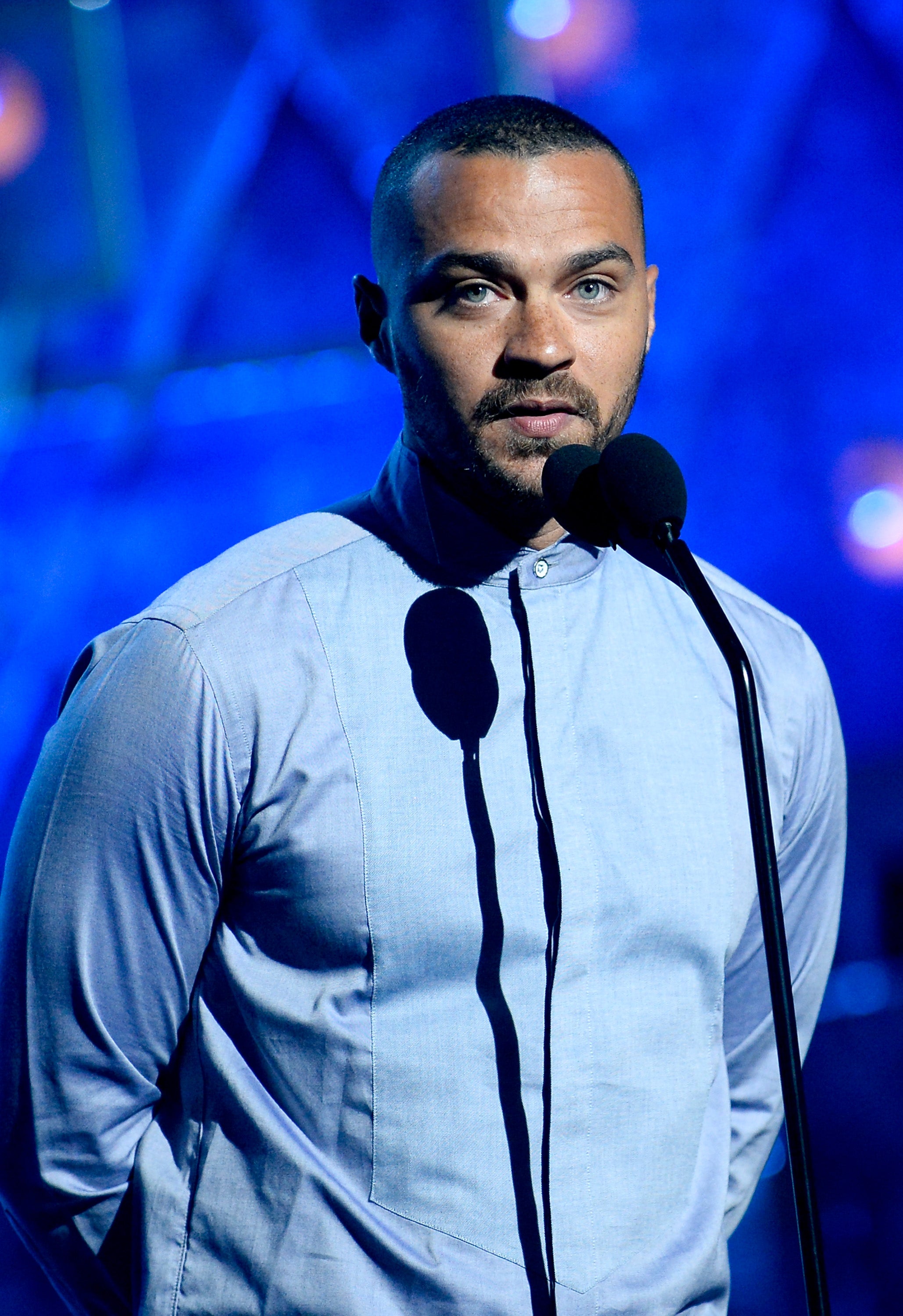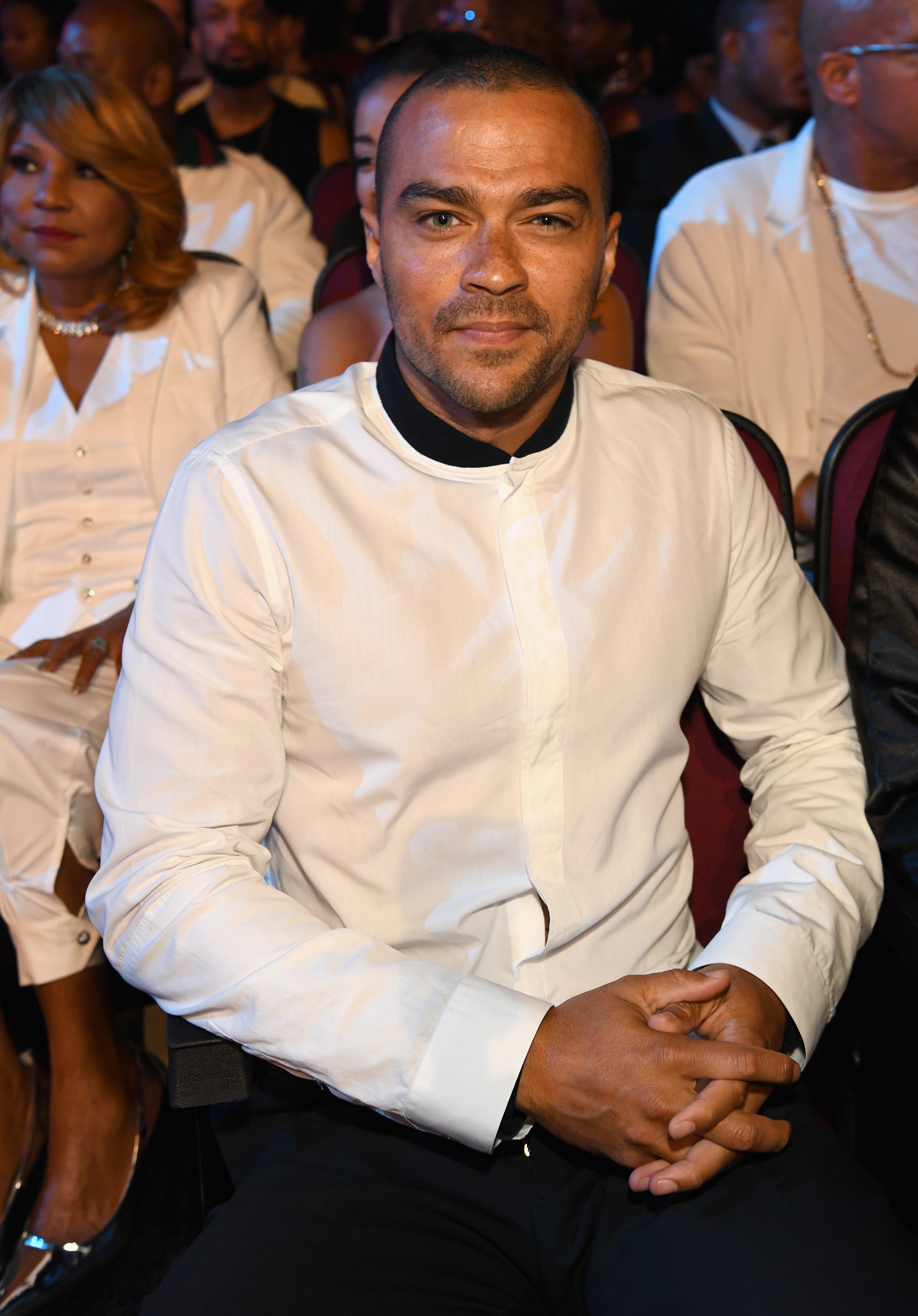Before we begin to get excited about the vast opportunities available in the cannabis industry, Jesse Williams wants to have a very real conversation with you about what we’re up against.
In a new Spike Jonze-produced documentary The New Normal, Williams hopes to educate, inform, and inspire a cultural movement towards widespread acceptance. It’s a project that’s determined to change the narrative around cannabis consumption and dig deeper into its criminalization.
Williams, who partnered with Los Angeles-based cannabis company MedMen to create the 10-minute documentary, told ESSENCE it’s a “creative attack” on cannabis criminalization in the Black community, which tells “the history of marijuana so we can stop pretending that it’s about bad guys versus good guys.”
“America used to force Africans, for free, to grow and cultivate marijuana so they could sell it. And now, you’re selling them for profit, to prisons, for having it anywhere near them or in their apartment. So it’s a full circle moment. It’s pretty gross,” the actor explained.
ESSENCE spoke with the Grey’s Anatomy star about his latest role and why he’s taking a stand in the cannabis industry, the complex history of marijuana in this country, and how his latest fight is bigger than just using weed; it’s connected to our collective freedom.
I love that cannabis crusader is your next stop in activism. Why the focus on cannabis and why do you feel that this is the time to put it all on the table? Why is now the time to change the way we think about weed?
I actually center it more as I’m a social justice activist. I care about freedom and equity and access and justice for Black people in particular, and from that center I am including other movements and other issues that are impacting us. The war on drugs and the war on Black people through policy and policing is pervasive and devastating and has been for decades. This is an extension of that, and I’ve had enough. And now we’re watching a bunch of White people get rich off of it. At the same time if you’ve ever been incarcerated or impacted by mass incarceration you’re disqualified from even participating in the cannabis boom. I don’t trust policy makers. I don’t trust the consciousness of White America to enforce the policies that we already have in place in a non anti-Black fashion. They’ve proven themselves to be anti-Black, they’re constantly [creating] policies that are racist so I say let’s just decriminalize the whole thing.
Weed isn’t a big part of my life, but I’m interested in our freedom. That’s the root of this.
Jesse Williams
In the documentary, we see the stories of veterans and how they use cannabis to heal. It was really an explosive way to turn that stigma around on its head. Why do you feel like it was important to tell and share their stories?
Because this has also been fought off for so long because of the incredibly corrupt medical community and big [pharmaceutical] companies. We’re sending…Black and Brown people, who don’t have any other options, or have any ways to protect themselves, or have other ways to make consistent living otherwise, we’re sending them off to a war machine, to go off and kill other people. They are traumatized and have irreconcilable chaos in their lives to then come back and leave them for dead. And you’re doing that for money. They could have CBD oil, and other derivatives of sativa and indica [to help them heal]. So it’s about medicine, it’s about my grandmother, it’s about the elderly, it’s about people improving their quality of life. And if it’s OK for me to pop Ritalin, and Xanax and Zoloft and anti-depressants, and no one’s throwing White people under the jail for having a little bit of coke at a party or having some weed in high school or college—which I know because I went to school with them—then you shouldn’t be doing it to us.

There’s also a historical context within this doc that I think will surprise a lot of people, particularly that slaves had a hand in growing weed. What do you hope the impact of that type of information will be? What do you hope the audiences gets from that?
As a history teacher and a teacher of African American history, that’s something that’s obviously right up my alley and my point of interests. Exposing that Africans were forced to grow and cultivate marijuana and then fast forward a little bit later, they’re [now] forced into cages for being anywhere near it [was essential]. So the schizophrenia of American racial and criminal politics is one issue, but there’s also a central figure in that first diorama, which is me portraying one of America’s greatest heroes—greatest in terms of most exposure—George Washington.
So are you a hero, military genius, thought leader and also a human trafficker? And a sex trafficker and a kidnapper and overall horrible person? If Africans are human beings that would be true. If we’re not human beings, then he’s just a farmer. But America has to decide, and start telling the truth in a complete way about our heroes.
I always love to take the historical, white American deities that built their reputations on our backs and shine a light on them. There are subtle nuances that are particularly interesting for me—that doesn’t mean that it was Spike’s mission or MedMen’s mission—but there are things creatively that get me excited and that will last forever from the work we’re doing.

Because of the criminalization around cannabis, it can be difficult for Black people to break into the business of it, while our White and non-Black counterparts are flourishing. How will uncovering the racial and social injustices tied to cannabis use help more Black people break into the business side of the industry? Do you think that’s possible?
It is possible. It will take time and we’re behind. The race started 300 years ago and you just got to the starting block 20 minutes ago. The more we talk about it, the more we speak honestly about the mechanisms that allow it to function, then folks can’t keep pretending that it’s all fair and equitable, and the playing field is level. No, it is not. So let’s talk about why it’s not so we can know. Exposure is always helpful if our goal is freedom and equity for ourselves and those we care about. There needs to be a rise and resurgence of the Black economy and the Black dollar staying in our community through being literate about technology, internet, cannabis—anything that’s growing on this high up side that’s beneficial to us. And the only way we learn about these things is exposure to how we got here in the first place.
Throughout the process of this documentary, was there anything you discovered that you’d like to bring more attention to? And how does working on this project lead to what’s next for you?
I learned a little more about sexual trauma in the military and how lasting that impact can be in creating a hole in people, and then dumping a bunch of pharmaceuticals into that hole to create more a dependent, unstable person. I also learned how that can disproportionately affect our women of color. While it seems kind of obvious when you do the math, of course, that’s who would be impacted. I try to keep my focus fairly narrow so that I can be impactful and focus on two issues well as opposed to seven things thinly, where you’re not actually accomplishing anything, so you’re just feeling good. I wasn’t interested in cannabis. Weed isn’t a big part of my life, but I’m interested in our freedom. That’s the root of this. Whatever it is: if it affects our freedom, and our mental health, and our ability to understand attainable goals, and put things ahead of us that we can actually tackle to be able to get fully independent and healthy, that’s where you’ll find me.
